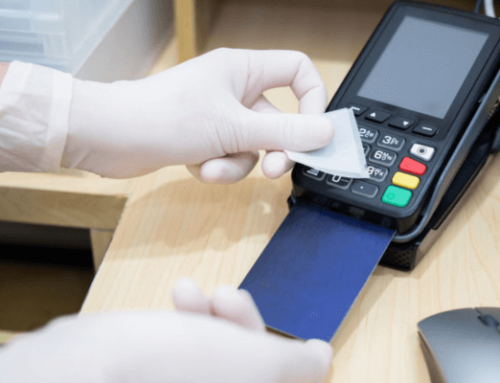
To the extraordinary e-commerce growth (e-commerce) in the last two years is added, according to the latest report from the National Cybersecurity Centre (CNCS), a considerable increase in the number of incidents related to cyber-attacks in Portugal which, in 2020 alone, reached 1347, an increase of 79% over the previous year and the trend is getting worse.
Given these two factors, the security of e-commerce sites It thus becomes a decisive element not only in the image of your business, but also in maintaining consumer confidence in your brand, making it thrive and consolidating its position in the market.
But after all, how can i make a site secure? In order to answer this question that hangs over the heads of thousands of entrepreneurs, throughout this article we're going to give you some precious security tips so that you can continue to sell and earn the trust of your customers.
How can I make my e-commerce site secure?
In addition to precautionary measures such as not processing transactions with high-risk characteristics (transactions that exceed your shop's normal sales standards or orders to high-risk addresses such as PO boxes, prisons, hospitals), carefully confirming orders placed with multiple cards or with cards that have sequential numbers (these may be signs of fraudulent activity) and checking the order for suspicious or unusual names or spelling mistakes, you should take the following measures:
-
Activate the SSL certificate
By allowing personal and bank details to be encrypted as they are sent to your site's server, the SSL certificate assures your customers that these details are not stolen during the checkout process.
The SSL certificate is identified by the URL that changes from HTTP to HTTPS, with the last letter corresponding to security. So, with this certificate, as well as giving your customers greater confidence at the time of purchase, SSL helps to improve your site's ranking in search engines and even becomes essential if you want to invest in marketing campaigns, since platforms such as Google Shopping require the presence of this certificate for the campaign to go ahead.
If you're wondering how to solve your site's certificate problems, know that this can come from two sources: a lack of certificate or an unsecured connection warning (even with a certificate).
In order to resolve the problem, you should request an SSL certificate directly from your server's support team (free of charge in most cases) or, in situations where you already have the certificate but the site points to a connection that is not completely secure, meaning that the certificate is no longer active, you should activate it using the Really Simple SSL plugin.
Another common error that occurs with websites that have certificates is related to the date and time. To eliminate this error, you should correct the time on your computer and apply it to the browser, thus resolving the problem.
-
Keep software, systems and browsers up to date at all times
In order for your e-commerce site to remain secure and functional at all times, you should frequently update your software, systems, plugins and browsers.
This constant updating not only helps to correct faults and minimise future errors, but can also help your site to perform better.
-
Choose diversified payment methods and implement anti-fraud systems
In a world as volatile as e-commerce, any website failure or attempted fraud deserves an immediate response from customers via the shopping basket abandonment and the elimination of the online shop from your list of purchasing options.
To prevent this from happening, you should pay special attention to online payment methods and anti-fraud systems with which it "equips" its website. e-commerce.
In terms of anti-fraud systems, try to include multiple data requests in the purchase process, such as e-mail, name, address, mobile phone number, place of delivery and IP address.
Likewise, map the number of visits to the site, cart abandonments, purchase cancellations, customer history, etc.
Invest in offering e-commerce payment methods not only is it a good way of meeting the consumption habits of e-shoppers, but it also reduces the rate of cart abandonment before check-out (finalising the purchase process), as well as allowing you to resolve problems with the security of online payments.
This is the case with payment gateways which, in general terms, are own payment platforms that direct the customer to the checkout and prevent your online shop from fraud through risk analyses.
To ensure that checkout is not a problem and that payment security is always guaranteed, REDUNIQ offers you a solution for online payments safe and multifaceted that goes by the name of REDUNIQ E-Commerce.
As well as enabling the site to receive online payments with Visa and Mastercard debit and credit cards from all over the world, the REDUNIQ E-Commerce solution there are no membership or monthly fees.
In practical terms, the REDUNIQ E-Commerce directs your customer to a secure UNICRE payment page at the time of the transaction.
Here, the customer enters their card details, which will be validated with the issuing bank and which they will never be able to access as a merchant.
Once the transaction has been validated, payments are credited to your account within two working days of the purchase date.
As receiving secure online payments is not just a necessity for online shops, REDUNIQ offers those who sell online without a website via social networks or marketplaces the REDUNIQ@Payments, a turnkey solution that requires no integration and will allow you to receive online payments by email, SMS, WhatsApp or MB WAY with Visa and Mastercard cards.
In addition to facilitating the e-commerce payment REDUNIQ@Payments ensures that you receive payments simply, securely and conveniently.
-
Encourage customers to use strong passwords
One of the most common causes of cyber incidents is weak and random passwords.
Therefore, encourage customers and users of your e-commerce site to use strong passwords that can protect their account by requiring a combination of letters, numbers and special characters.
Another feature to consider is double authentication, which can preserve and hinder malicious access
-
Armour the site
In practical terms, "armouring the site" means using protection software in your online shop that protects it from threats 24 hours a day by detecting possible intrusions or systems that, among other things, aim to steal information or infect users who enter the site.
As a rule, and although the scope varies from software to software, the protection systems on the market offer a wide range of features:
-
- Malware scanning for WEB applications;
- Vulnerability scanning of public IPs;
- Automated pen test;
- Mini Pentest.
-
Back up your data
In spite of all the safety measures you can take in order to protecting your online shop and your customers' dataThe truth is that the level of sophistication of cyber-attacks is growing by the day.
So, in order to prevent the loss of important data due to a cyber-attack, consider creating a backup of the data on your server so that you can recover it without major losses to the credibility of your business with customers.
This can be done through a system that constantly stores information in another database or through server mirroring, the practice of preserving data by automatically creating replicas between parallel servers. As soon as one of these servers goes down in some way, the other kicks in to lessen the impact of the cyber-attack.
-
Have a security policy
In general, companies that operate on the Internet must have security policies that are applied and maintained for customers, suppliers, partners, departments and internal processes.
These security policies should be easy to access, contain clear information on the use and sending of data, whether it belongs to the company or to third parties, and should always be present on your pages and forms.
Remember that with the entry into force of the GDPR (data protection law), companies on the Internet are obliged to take extra care when using and acquiring data from their users and customers, both for traffic and browsing and for storing and using sensitive information and data.


